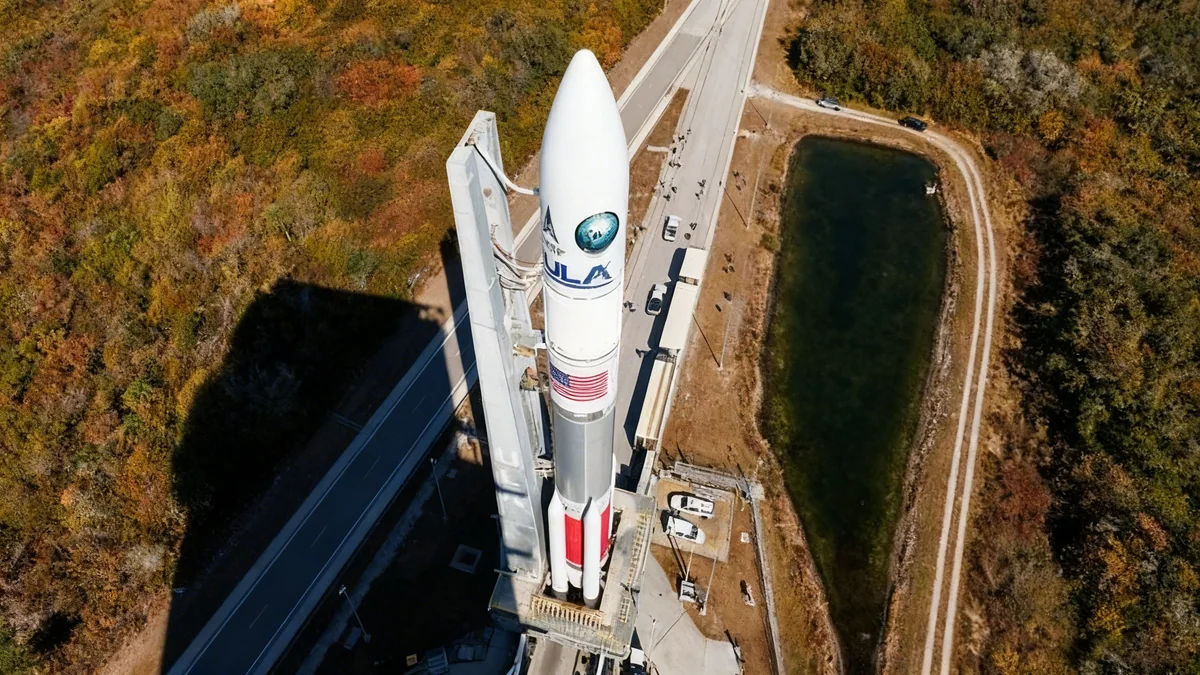Polish optical systems manufacturer Scanway Space has secured its first contract with an American company, providing a multispectral telescope to Intuitive Machines for a 2026 lunar mission. The instrument is designed to map the Moon's surface from orbit to identify mineral resources.
Key Takeaways
- Scanway Space will build a multispectral telescope for Intuitive Machines' 2026 lunar mission to search for minerals.
- This marks the Polish company's first contract with a U.S. firm, signaling a key market entry.
- The company also signed a deal with the European Space Agency (ESA) to process the lunar data collected by the telescope.
- Scanway reported a 119% revenue increase in the first half of 2025, reaching 11.6 million Polish złoty ($3.2 million).
- The company is expanding globally with additional contracts in South Korea, Germany, Denmark, Lithuania, and Southeast Asia.
Scanway Enters US Market with Lunar Mission
Scanway Space, a company based in Poland, has achieved a significant milestone by securing its first order from a United States-based client. The agreement with Intuitive Machines involves the development and delivery of a specialized multispectral telescope.
The instrument's primary objective is to conduct orbital mapping of the lunar surface. According to Scanway CEO Jędrzej Kowalewski, the telescope will enable Intuitive Machines to search for valuable minerals from lunar orbit. The mission is currently scheduled for launch in 2026.
One of the key minerals the mission will target is ilmenite, which is composed of titanium, iron, and oxygen. Kowalewski noted that this resource could be instrumental for the construction of future lunar colonies. The financial details of the contract were not disclosed.
Supporting Future Lunar Operations
The search for resources like ilmenite is a critical step in establishing a long-term human presence on the Moon. Oxygen extracted from ilmenite could be used for life support and as a rocket propellant oxidizer, reducing the need to transport these resources from Earth.
Strategic Growth and Global Expansion
This American contract is part of a broader expansion strategy for Scanway. The company has outlined ambitious plans to develop new products, including Earth observation satellites with ground resolutions below one meter and significantly larger telescopes described as being "the size of an SUV."
Jędrzej Kowalewski stated, "We want to achieve increasingly larger diameters and resolutions, including hyper- and multi-spectral instruments. We also develop systems for space inspection, such as wide-angle cameras." This focus aims to attract orders from major players in the global space industry.
Scanway's international presence is growing rapidly, with several other contracts secured worldwide:
- South Korea: Developing telescopes for methane detection from orbit for Nara Space.
- Southeast Asia: A $9 million contract, its largest to date, for a high-resolution Earth observation telescope system for an undisclosed client.
- Denmark: An order from satellite manufacturer Space Inventor for a telescope to conduct advanced asteroseismological observations.
- Germany: Building a telescope for Marble Imaging, a startup planning a constellation of 200 satellites.
- Lithuania: Supplying camera systems for satellite-to-satellite docking inspections.
Despite this global reach, Kowalewski emphasized the strategic importance of the American market. "The American market is very important to us, and we also want to grow our presence there," he said.
Strong Financials and European Partnerships
Scanway's recent business successes are reflected in its strong financial performance. The company announced revenues of 11.6 million Polish złoty ($3.2 million) for the first half of 2025. This represents a 119% increase compared to the same period in 2024.
In addition to its commercial contracts, Scanway is strengthening its relationship with the European Space Agency (ESA). Earlier this year, the company signed a separate agreement with ESA to build a multispectral data processing system. This system will be specifically designed to handle and analyze the lunar imagery captured by the telescope being built for Intuitive Machines.
Scanway's 2026-2028 Strategy
In late September, Scanway published its new strategy for 2026 through 2028. The central goal is to establish the company as one of the largest optical payload integrators in Europe, leveraging its recent contract wins to build momentum.
Key Role in Polish National Space Projects
On its home turf, Scanway is a key contributor to Poland's growing space sector. The company is involved in the Country Awareness Mission in Land Analysis (CAMILA), a 59 million euro ($68.75 million) satellite constellation project financed by the ESA. This project is led by another Polish space company, Creotech Instruments, with Scanway acting as a major subcontractor.
Furthermore, Scanway is supplying a telescope for the first PIAST satellite constellation. This defense-oriented project is being developed for the Polish Ministry of National Defense, highlighting the company's role in both civil and national security space initiatives.
These domestic and international projects demonstrate Scanway's expanding capabilities in designing and manufacturing advanced optical systems for a variety of space-based applications, from lunar science to Earth observation and defense.





